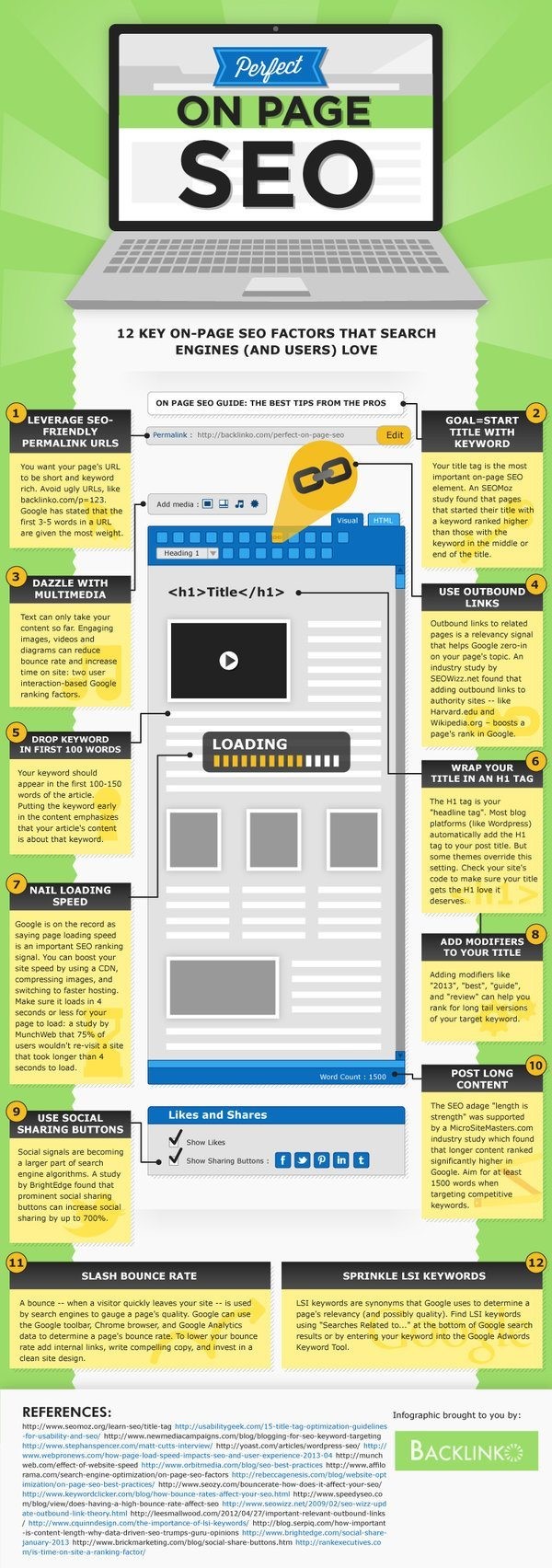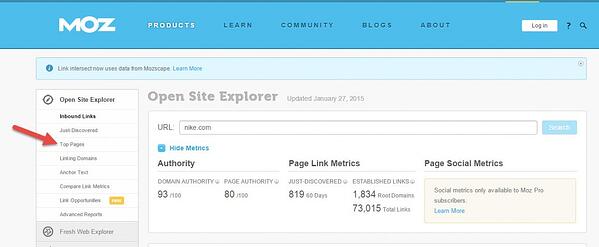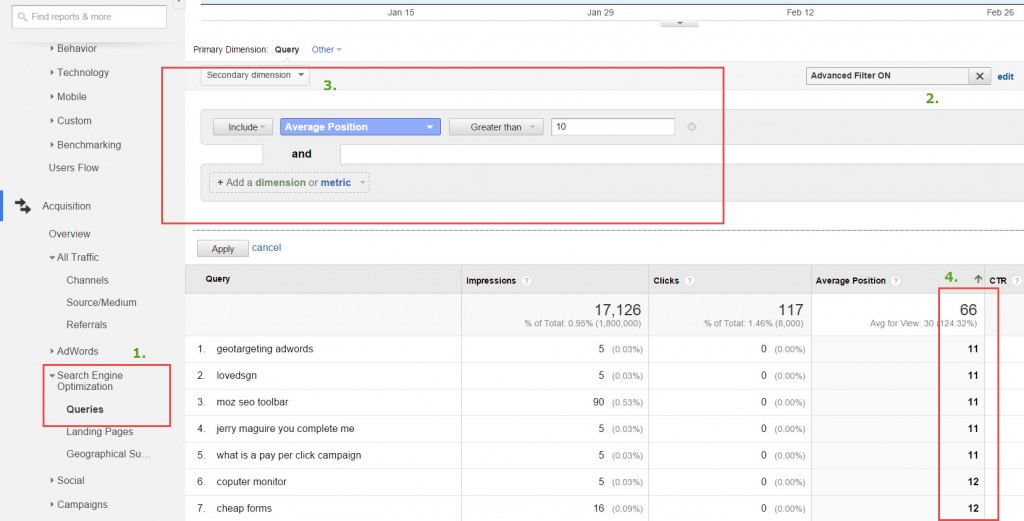How To Improve Your Search Engine Ranking On Google
Everyone wants to be highly ranked on a search engine results page (SERP), but with only 10 organic spots available, most small businesses don't know...

There is a lot to consider if you want to rank high for search engines. So, how do I rank high for search engines?
You need to consider the type of content your creating, whether it’s relevant to your audience, whether Google thinks it’s worth ranking, and even the user experience of your site.
All of these factors, and more, contribute to your search engine rankings.
In this article, we’ll go through six key ranking factors you are likely aware of, but might not be utilizing to their fullest potential.
We’ll also discuss three ranking factors few people know about (or pay enough attention to).
These factors are going to play a much bigger role as search engine algorithms become more advanced. They will be important for you to focus on in the near future, or you might lose out on a lot of potential traffic.
Here are the nine ranking factors:
• Competition for keywords
• The relevancy of your content
• Backlinks
• Social shares
• High page views
• High unique visitors
• Brand recognition
• Strong user experience signals
• Click through ratio
For almost every keyword you’re trying to rank for, there are other people trying to rank for them as well.
This creates competition. The more competitive a keyword, the harder it is to rank for it.
Keywords are typically broken up into three types:
• Head keywords
• Body keywords
• Long tail keywords
Head keywords are usually one word phrases like “marketing” or “running”. If you search for these terms, you’ll notice extremely authoritative sites, like Wikipedia, ranking for these keywords.
Hence, they’re almost impossible to rank for, and aren’t worth your while anyway. If someone searches for “running”, they could be search for running shoes, magazines, training regimens – who knows? If you’re a running club trying to attract new members, none of those searchers appeal to you.
That’s why you should focus on Body and Long Tail keywords. These keywords are 2 – 4 words long (or more) and represent a more targeted audience. Instead of using the keyword "running", a long tail keyword like, “Nike Red Men’s Running Shoe,” will bring more targeted traffic.
They have less competition than Head Keywords, and they’ll attract more of your target audience.
In his Definitive Guide to Keyword Research, Brian Dean suggests you focus on ranking for Body Keywords, because you will start ranking for long tail keywords that are naturally present in your content.
Have you have ever heard of “on-page optimization”?
It’s simply a method of tweaking your content to make it more relevant to search engines. This also means making it more relevant to the people searching for your content.
Google’s job is to provide searchers with the most relevant content.
It’s your job to signal to Google that you’re content is one of the most relevant, out of all the other articles, for the keyword you’re trying to rank for.
Luckily, Mr. Brian Dean put together a nice infographic that explains all of these on-page SEO factors.
Here it is:

Couldn’t have said it better myself!
Links to your website represent people casting votes for your content.
More people linking to your content means more votes. More votes means higher search engine rankings. That’s the theory, anyway.
Recently, there has been a massive push to build quality backlinks. This means links from authoritative sites that Google trusts.
These sites are already ranking high, and they have high domain authority and page rank. Their votes carry more weight than lower-level websites.
To build quality backlinks, you need to create content that’s worth linking to.
It has to be the best of the best on that topic.
Then, you need to promote this content and get it in front of the people you want to link to you. In other words, you need to get it in front of authoritative sites.
One way is to feature these websites in your content. This gives you a compelling reason to contact them, and it makes it much easier to reach out and ask for a link or social share.
Or, you can get your content featured by other, lesser known websites, and hope that these authoritative sites see it and link to it.
Either way, your top priority in building backlinks should be getting links from authoritative sites, because it will give you the most bang for your buck.
You can also link to your own web design and content for quality backlinks.
If you head on over to Moz.com you can use their free Open Site Explorer tool. Run a search for your website and choose the “Top Pages” link on the left. If you have some pages that have a high page authority, and they are related to the content you are trying to get a higher ranking for, place a link to the content you want to rank higher on each of those pages.

The high ranking pages will add some link juice to your other content and pull it up the search results.
However, the content you want to rank higher needs to be close to the first page of Google. If it’s on the 3rd page, this tactic won’t do much.
You'll need to check Google Analytics to see which pages you have close to the first page of search results. After you have logged into your account, follow these steps:
You are looking for pages that rank around the 11th position, which is the first result on the second page of Google's search results. Try to find a page that also has similar content to the high ranking page you are going to place the link on.
Click to see a larger version:

Just like links, social shares also represent votes cast for your content.
This signals to Google that people like your content. The more people who like it, the more your content deserves to rank.
It signals to Google that your content is both high quality and relevant to searchers.
To get social shares, you need to promote your content. At the very least, you should email it to your list and share it on your social media accounts.
To really grow your share count and increase your traffic, you need to go a bit deeper.
Here are some promotion tactics from Robbie Richards that will take your content promotion to the next level.
Google knows how many views and unique visitors your website is getting. They know your traffic stats.
Sites that deserve to rank high in search engines are sites that get a lot of traffic.
It signals to Google that you have content a lot of people enjoy consuming. If you can signal to Google that people enjoy consuming your content more than other related content, you can increase the chances of Google showing you some love and sending traffic your way.
How do you increase your page views and unique visitors?
• Produce industry-leading content
• Promote that content like your site depends on it
• Capture the traffic that arrives and build an audience
We’re getting into the three little-known search engine ranking factors that are going to play a larger role as search engines algorithms become more advanced.
I first heard about these ranking factors in this video on Matthew Woodward’s blog.
John Limbocker is the speaker, and he has been doing SEO before it was called SEO. He revealed 3 new Google ranking factors that shocked an entire audience at an SEO conference.
“Brand recognition” is one of those factors.
If people are searching for your brand, and clicking through to your site, it signals to Google that your brand is becoming well-known. People are starting to identify who you are because you’re providing a valuable service.
Your brand doesn't necessarily need to be an established “brand”. It can simply be the name of your website or domain. If people are searching for your website name or domain, it’s the same as someone searching for Coca-Cola or Reebok.
To increase your brand authority, Jim suggests making use of press releases, articles, and a mix of backlinks with your brand as anchor text and with your keywords as anchor text.
Do everything you can to increase brand awareness. Eventually, people will start searching for your brand.
When they know you can deliver what they need, they won’t need to search for anything else.
Google is now taking user experience into account as well.
How can they do this? How do they know whether a user is having a good experience on a site, or whether they’re having a bad one?
The answer is in your stats. Just like Google knows your traffic stats, they know the rest of your stats as well.
• Time on site.
• Bounce rate.
• Pages visited.
Google also takes your internal link structure into account.
These all tell Google whether your site is giving people a good user experience or a bad one.
Here’s what you want to shoot for:
• High time on site
• Low bounce rate
• High pages visited
• Relevant and useful internal link structure
The first three – time on site, bounce rate, and pages visited – signal to Google that people are arriving to your site and sticking around. They’re enjoying your content because you have multiple pages that cater to their needs.
The fourth one – relevant and useful link structure – is one of the ways to improve user experience signals.
Internal link structure helps both people and search engines navigate your site better. Keep your internal link structure relevant by linking from one related article to another, and people will stick around longer to consume your content.
Search engines will also travel from one link to another, assessing the relevancy of each page and deciding how to rank them.
The more relevant you make your internal link structure, the easier it will be for Google to determine what your content is about and how valuable it is.
And if people are being attracted to this content as well, Google will add this factor into your ranking.
This is our third and final little-known ranking factor:
Click through ratio.
Click through ratio is determined by the percentage of people who search for a keyword you’re ranking for, see the link to your site, and actually click on it. The more people who see your link and click on it, the higher your click through ratio.
A high click through ratio signals to Google that your content is relevant for that search result. If this happens, they will rank you higher for it.
If Google consistently sees your content not being clicked on, and other pieces around you are being clicked on, they will move those articles higher and move yours lower.
So, what can you do to increase your click through ratio?
One way is to write a compelling headline. Make it benefit rich and targeted for that keyword. This will help people see that your content is more relevant to their search.
The other way is a sneaky one from Jim:
You can edit your SEO title or meta description to have an ellipsis (…) appended to the end of it.
This creates curiosity for the searcher. They think to themselves, “I wonder what is behind that ellipsis?”
Here are a few examples:
• “How to Rank High for Search Engines and Get…”
• “This Simple Strategy Got Me 5,000 Visitors in Just…”
• “How to Grow Your Business to $20,000 per Month While…”
The title gives searchers just enough characters to know what your content is about, and the ellipses tells them there’s even more to find out behind the link.
Pretty smart, if you ask me.
Thanks Jim.
To recap, here are those ranking factors again:
• Competition for keywords
• The relevancy of your content
• Backlinks
• Social shares
• High page views
• High unique visitors
• Brand recognition
• Strong user experience signals
• Click through ratio
Don’t forget to focus on each one as you develop and implement your SEO strategy.
What you will find out, as many people do, is that the best SEO strategy is to create an extremely valuable site that people love coming back to over and over again.
All of these ranking factors contribute to creating a more valuable site. That’s what the people want.
So, give the people what they want, and in return, Google will send you the people.

Everyone wants to be highly ranked on a search engine results page (SERP), but with only 10 organic spots available, most small businesses don't know...

If you own a local business, one of the most important things you can do to attract new customers is to improve your local SEO ranking.

Is your current website outdated, underperforming, or not have the functionality that you need to hit your marketing goals? Then it’s time to create...